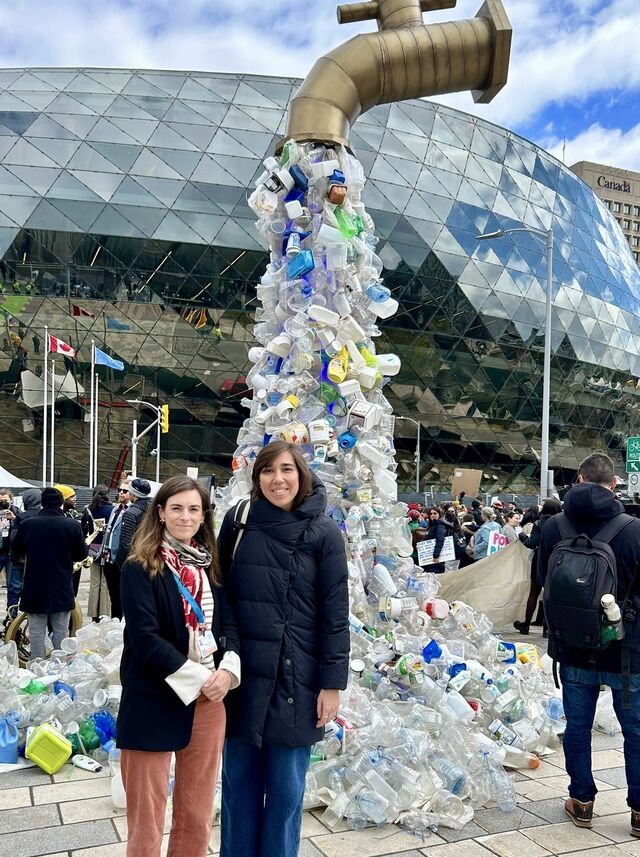Reflections on INC-4
We returned from INC-4 with a bitter-sweet feeling. Expectations were very high for delegations to progress on the treaty text, going beyond procedural matters, and for a mandate for intersessional work before INC-5.
Between April 23rd and 29th, delegates split into two contact groups, each with multiple subgroups, to advance negotiations on substantial matters and means of implementation. By the end of INC-4, there was a mandate for intersessional work on relevant topics, such as means for implementation, financial mechanisms, plastic pollution, chemicals of concern, and product design, with a focus on recyclability and reusability of plastic products
The best available science shows that the world cannot achieve our goals of ending plastic pollution and limiting global warming to less than 1.5° Celsius if the unsustainable production of primary plastic polymers is not addressed. “Plastic action is climate action.” has become a common refrain around the INC talks. Despite this, it’s very disappointing to see that the mandate for intersessional work did not include plastic production, reducing the chances for this to be included in the final treaty text.
31 countries have already formally endorsed the Bridge to Busan declaration, that calls for all INC members to address the unsustainable production of primary plastic polymers in the treaty. 12 of those countries are either SIDS or coastal developing countries, nations that are disproportionately affected both by the climate crisis and plastic pollution.
Common Seas has been working in partnership with SIDS and coastal developing countries to tackle their plastic pollution, and we also part of the group of stakeholders publicly endorsing the Bridge to Busan declaration. Without closing the tap, those countries will continue to be the most affected, while being the countries that contributed the least to both crises.
To address plastic pollution, developing countries, including SIDS, have been very clear during INC-4 regarding the need of a dedicated funding mechanism to ensure the implementation of the treaty. It is great to see that this is part of one of the expert groups being formed after INC-4.
A group of Businesses have also been in favour of an ambitious treaty with global rules, adverts for the Business Coalition for a global plastics treaty were to be seen all around Ottawa. However, these were balanced by an equal number of adverts and the huge lobbying weight of a powerful petrochemical industry that is lobbying for a low ambition treaty.
In 2021, the United Nations Human Rights Council recognized the right to a clean, healthy, and sustainable environment as a human right. Acknowledging the disproportionate impact of plastic pollution in developing states and vulnerable groups, this treaty has the opportunity to protect and promote a fundamental human right to the most affected people.
There is still a great deal of ground to cover ahead and during INC-5 if we are to see an ambitious treaty by the end of this year. We still need delegations respond to science and to the urgency of this issue. Only then can they agree on an effective and bold treaty with a balance of measures across the full lifecycle of plastics—from production and design through waste management and remediation – while ensuring a just transition to a circular economy.

Thais Vojvodic and Carla Worth.


